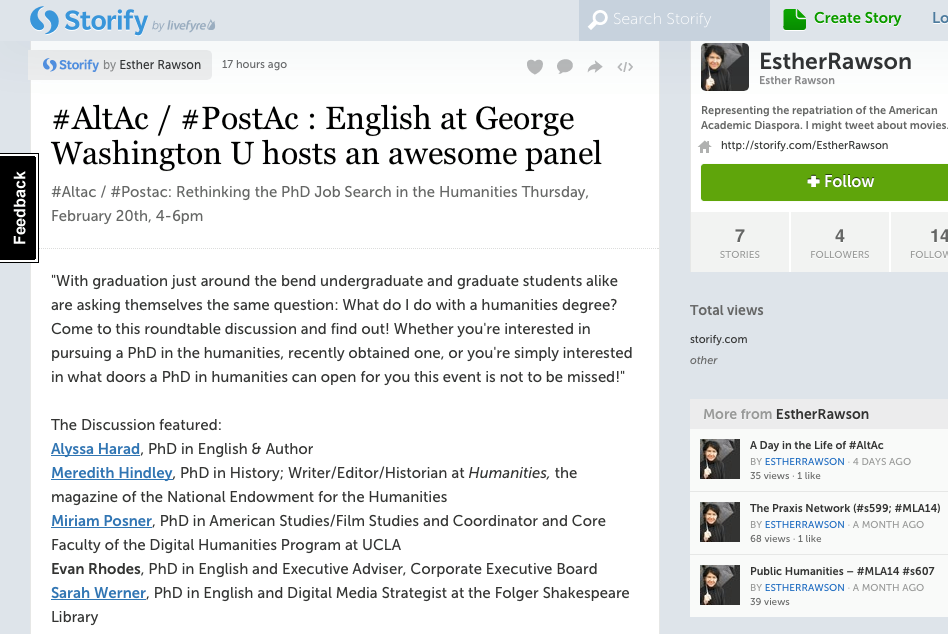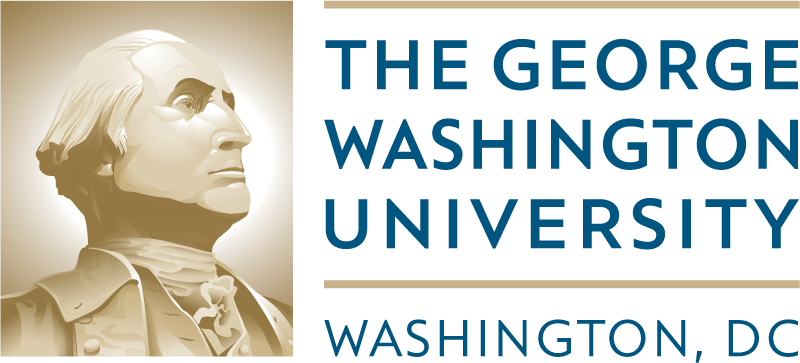What is Digital Humanities (DH)?
Pose this question (or a variant) to ten different people, and you’ll get at least ten different answers. Note the proliferation of online responses to “How do you define DH?” and numerous scholarly perspectives in the Debates in the Digital Humanities.
In the mission statement to their site Postcolonial Digital Humanities, co-founders Adeline Koh and Roopika Risam offer a “working definition” of DH as “a set of methodologies engaged by humanists to use, produce, teach, and analyze culture and technology.”
The Digital Humanities Institute at GW is a community that embraces a capacious understanding of the term. In its broadest sense, DH (or Digital Humanities) brings together all kinds of people who are interested in how humanist ideas, methods, materials, and creations interact with digital media.

Getting started in DH (exploring, teaching, publishing, creating):
- Adeline Koh, “Introducing DH to Undergraduates” (article published in Hybrid Pedagogy)
- #AltAc/#PostAc: Rethinking the PhD Job Search in the Humanities (blog posting about a roundtable at GW about careers for PhD’s beyond the academy; links to helpful advice and resources)
- Beyond the Professoriate (blog associated with an annual virtual conference on career options outside or alongside academia). Created by Dr. Jennifer Polk (From PhD to Life) and Dr. Maren Wood (Lilli Research Group).
- Introduction to Digital Humanities, a self-paced course (Harvard University): online course for people interested in developing skills in digital research and visualization techniques across subjects and fields within the humanities.
- DH Resources (Penn Humanities Forum): organizations, online textbooks, syllabi, digital tools
- Directory of Open Access Books (DOAB): search by author, title, subject
- Directory of Open Access Journals (DOAJ): database of open-access, peer-reviewed journals
- Social Media Citation Style: Guide for researchers on how to blogs, tweets, and other digital media (in MLA and APA style)
Local projects and communities (DC, NoVa, Mid-Atlantic):
- Deaf Studies Digital Journal (DSDJ), Gallaudet University
- Digital Cultural Heritage DC (@DCH_DC)
- Digital Literacy at Richard Stockton College (DH@Stockton)
- Digital Anthology of Early Modern Drama (Folger Shakespeare Library)
- Institute for Advanced Technology in the Humanities (IATH), University of Virginia
- Interdisciplinary Humanities Research Center (IHRC), University of Delaware
- Maryland Institute for Technology in the Humanities (MITH), University of Maryland
- Roy Rosenzweig Center for History and New Media, George Mason University
- The Rutgers Digital Humanities Initiative (DH@RU), Rutgers University
- THATCamp DC (2014)
General (news, information, online journals):
- Association for Computers and the Humanities (ACH)
- Debates in the Digital Humanities (CUNY Graduate Center)
- Digital Humanities Quarterly (DHQ)
- Digital Humanities Now
- Digital Research Tools (DiRT)
- DH GIS (Geographical Information Systems) Projects (via historian blog Anterotesis)
- DM: Tools for Digital Annotation and Linking (Schoenberg Institute for Manuscript Studies, University of Pennsylvania)
- Iteration: Cross Disciplinary Studies in Rhetoric, Media, and Culture (open-access journal)
- punctum books (open-access and print-on-demand independent publisher)
Other DH centers, institutes, and collectives:
- BABEL Working Group
- Global Outlook::Digital Humanities (GO::DH)
- HASTAC (Humanities, Arts, Science, and Technology Alliance and Collaboratory)
- HASTAC’s Listing of DH Centers and Institutes
- Hybrid Pedagogy (open-access, peer-reviewed journal)
- Network for Digital Methods in the Arts and Humanities (NeDiMAH)
- THATCamp (“The Humanities And Technology” Camp)
- PhotoGrammar (Yale University)
- Postcolonial Digital Humanities (DHPoco)
- The Praxis Network
- Sounding Out! Sound Studies Blog
- Special Interest Group on Computational Semantics (SIGSEM)
- Special Interest Group on the Lexicon (SIGLEX)
